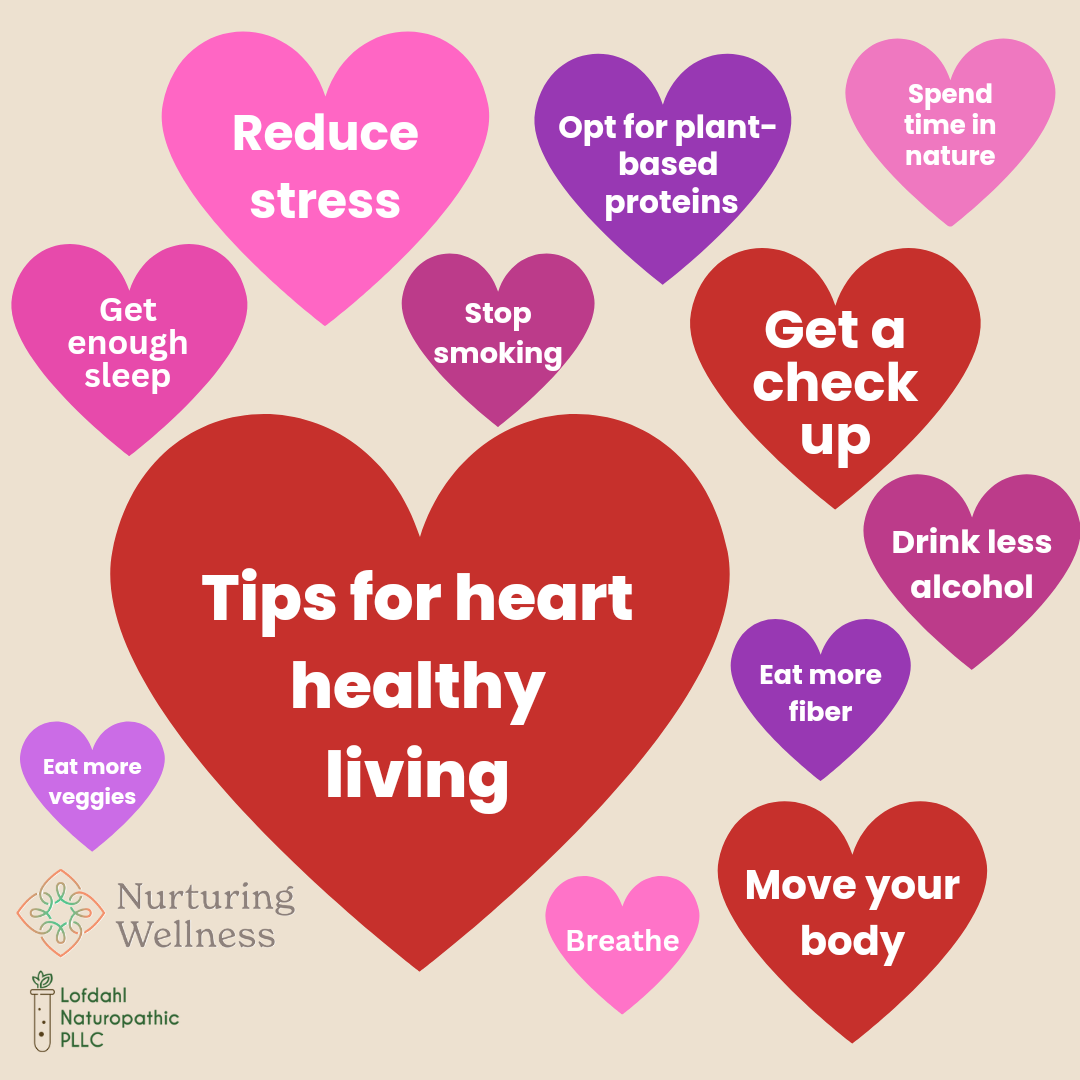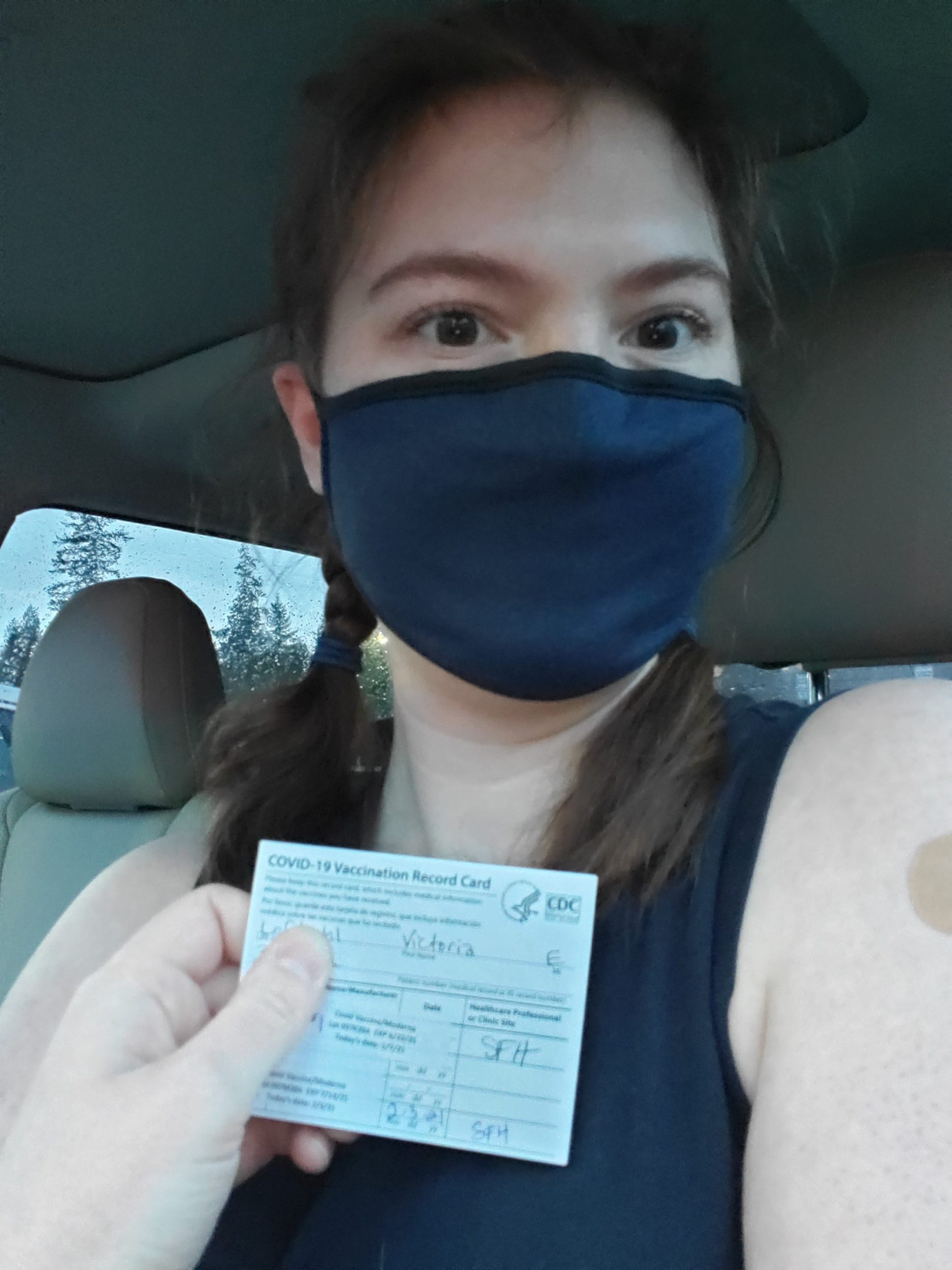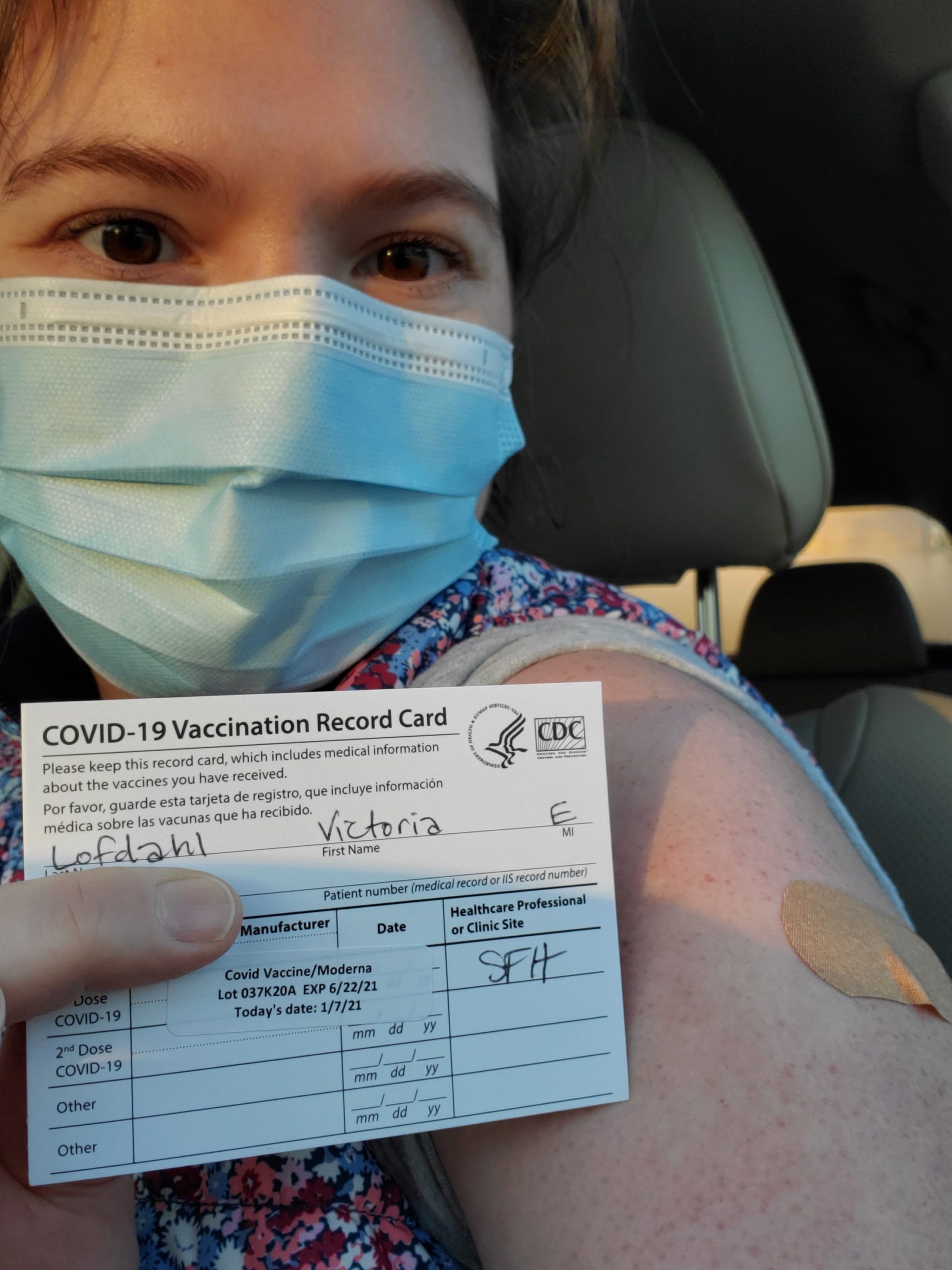Tips for Heart Healthy Living
February is American Heart Month. So it seemed like a good time to bring up some heart healthy living tips:
– Get A Check Up
– Drink less alcohol
– Stop Smoking
– Reduce Stress
– Get enough sleep
– Move your body
– Spend time in nature
– Eat more veggies
– Eat more fiber
– Opt for plant-based proteins
– Breathe
Get a Check Up
Getting regular check ups is an important way to see learn about your personal health by getting regular screenings for heart disease, cancer, and diabetes we’re able to get a better picture of your overall health and see where we need to focus treatments and provide better education.
Reduce Alcohol and Tobacco Use
Alcohol and tobacco use both negatively impact our health the less you use either the better.If you need help quitting smoking or alcohol talk to your healthcare provider or check out https://findtreatment.gov/ for resources.
Reduce your stress levels.
Stress is a normal part of life but when we are feeling overwhelmed by it that means it’s time to make a change and get help. Reach out to your healthcare professional or mental healthcare provider for more help.
Get Enough Sleep
Getting enough sleep is often difficult, but on average most adults need 8 hours a night to feel well rested. When we don’t get enough sleep it effects our health in a myriad of ways and generally makes us feel worse. If you need help figuring out your sleep, reach out to a healthcare professional.
Move Your Body
Moving your body is important. Many of us work at desks and end up sitting most of the day at a computer screen. Try to get up regularly and take breaks. Ideally adults should be getting between 150-300 minutes of moderate exercise or 75-150 minutes of vigorous exercise weekly.
Spend Time In Nature
Spend time in nature. Being in nature helps connect us to the world around us. It can reduce stress, increase physical activity and bring us joy. I’m obviously a bit biased as a naturopathic doctor but I think that if we took more time in nature we’d all be a little bit happier. And you never know what you’ll see. Even in urban environments, we have lots of plants and animals all around us if you take the time to look.
Eat More Veggies, Opt for Plant Proteins, Increase Your Fiber
Eat more veggies, opt for plant proteins, and increase your fiber. Plants are a great source of many nutrients, they also are a great source of fiber. When we choose plant proteins we get the fiber and additional micronutrients as well as the protein. 1 cup of cooked black beans has about 15g of protein and a about 15g of fiber. Most adults should be getting around 30g of fiber a day. Fiber helps reduce cholesterol and is an important part of a heart healthy diet. Talk to your healthcare provider or a nutrition specialist for help with dietary changes.
Breathe
Don’t forget to breathe. This is a lot of recommendations. No one expects you to be perfect. Even just taking time to breathe deeply with slow exhalations can be helpful for reducing stress and improving health.
If you are excited to make some of these changes and you want some help, consider scheduling with one of our providers at Nurturing Wellness. We’d love to see you!
Resources:
Mayo Clinic (n.d.) High-fiber foods. Nutrition and Healthy Eating. https://www.mayoclinic.org/healthy-lifestyle/nutrition-and-healthy-eating/in-depth/high-fiber-foods/art-20050948
U.S. Department of Health and Human Services. (n.d.). American Heart month. National Heart Lung and Blood Institute. https://www.nhlbi.nih.gov/education/american-heart-month
CDC. (n.d.). General Physical Activities Defined by Level of Intensity.
Facts about moderate drinking | CDC. (n.d.). Retrieved February 16, 2021, from https://www.cdc.gov/alcohol/fact-sheets/moderate-drinking.htm
How to Quit | Smoking & Tobacco Use | CDC. (n.d.). Retrieved February 18, 2021, from https://www.cdc.gov/tobacco/quit_smoking/how_to_quit/index.htm
Physical activity. (n.d.). Retrieved February 18, 2021, from https://www.who.int/news-room/fact-sheets/detail/physical-activity
Sorrentino, M. J. (2012). An Update on Statin Alternatives and Adjuncts. Clinical Lipidology, 7(6), 721–730. https://www.medscape.com/viewarticle/776919
The Skinny on Fats | American Heart Association. (n.d.). Retrieved February 18, 2021, from https://www.heart.org/en/health-topics/cholesterol/prevention-and-treatment-of-high-cholesterol-hyperlipidemia/the-skinny-on-fats
USDA. FoodData Central. (n.d.) https://fdc.nal.usda.gov/fdc-app.html#/











